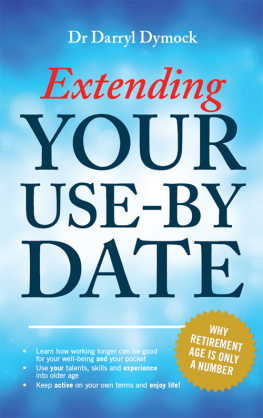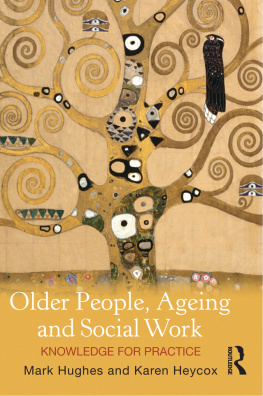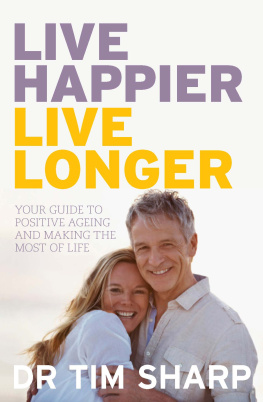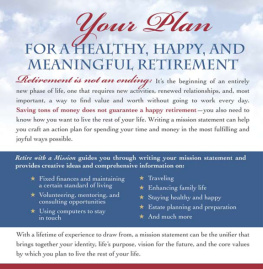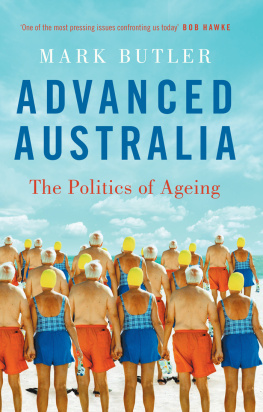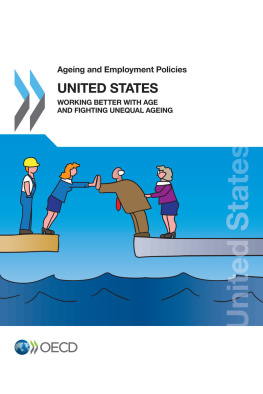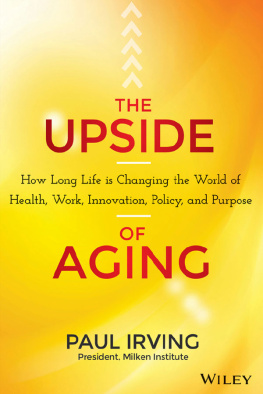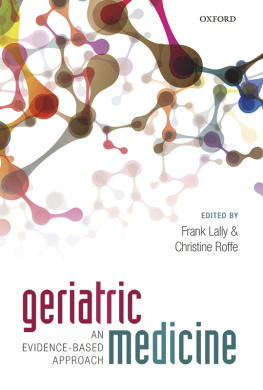ABOUT THE AUTHOR
Dr Darryl Dymock works part-time as a senior researcher at Griffith University, Brisbane, Australia, with a special interest in adult learning and development, and the abilities of older workers. Already a well-published author in his field, as a mature-age worker he gave up full-time employment to spend more time on writing narrative non-fiction and short stories.
Darryl is convinced from his long experience in educating adults that you can teach an old dog new tricks, so long as the animal in question wants to learn. He has four grown-up children, and lives in Brisbane with his wife and his laptop. So far he has had eleven different jobs, including clerk, taxi-driver, soldier, and university lecturer, and has lived in three Australian states, England, and Papua New Guinea. He has no intention of retiring.
ACKNOWLEDGEMENTS
What makes this book special are the personal stories that ordinary people have willingly shared about their working and volunteering lives. I promised when I interviewed them I wouldnt use their real names, to protect their privacy, so I want to say a genuine thank you to those anonymous older workers who have helped this book come alive. Some of their personal circumstances have changed in the meantime, of course, but that doesnt matter in this book we have a snapshot of them at a particular point in their life journeys, and the benefit of their example and advice.
Thanks too to my family and friends, who encourage my writing endeavours, especially my wife Cheryl, who is my rock. Although I researched and wrote this book as an independent project in my own time, Im grateful also for the support of my research colleagues at Griffith University.
Finally, thanks to those who have been responsible for helping this book reach its readers: my agent Sophie Hamley, and to the professionals at Xoum Rod Morrison and Jon MacDonald and the team, who have been enthusiastic about the book from the start. At this point Im not sure where e-publishing is heading, but thanks for inviting me along for the ride.
Darryl Dymock
Extending Your Use-By Date
Dr Darryl Dymock
While some people may hanker to retire as soon as they can, research shows that more than one million mature-age Australians are likely to continue working into older age, with around 650,000 of these planning never to retire.
As people live longer and birth rates continue to decline, the proportion of Australians over the age of 65 will double in just 40 years to comprise about a quarter of the population. An ageing population represents a valuable pool of wisdom, skills and experience, and with better health and higher levels of education, more Australians than ever are actively choosing to work longer.
In Extending Your Use-By Date, Dr Darryl Dymock examines why continuing to work later in life can be good for your health and your hip-pocket. Consider the following
Research has revealed that working beyond the age of 55 keeps you challenged and engaged, and stimulates brain cell growth
Many older workers prefer to work part-time, and recent changes to tax and superannuation laws make a leisurely move to retirement a much better proposition
Australia is becoming a knowledge-based economy and a move away from physically demanding labour will only increase opportunities for experienced and knowledgeable mature workers.
Extending Your Use-By Date is a practical how to guide that includes a handy list of ways to ensure you make the most of later-life opportunities. It contains advice on encore careers (career changes), information about becoming a consultant in your existing industry, about buying a business, and about volunteering. It also features dozens of real-life experiences of older workers, tips for mature-age jobseekers from the professionals, and a rundown on the employment sectors predicted to boom in the near future, for those wishing to retrain.
The message is simple you dont need to retire just because you have hit some magical age. Life is long, and continuing to use your valuable skills and abilities into your later years will not only earn you money, but might just help keep you young, too.
Chapter 1
OLDIES BUT GOODIES
If youre thinking of not retiring from paid work as you get older, or dont know when youll retire, youre not alone. In a recent Australian Bureau of Statistics (ABS) survey of almost five million working Australians aged 45 and over, some 400,000 said they didnt know at what age theyd retire and more than 650,000 said theyd never retire. Thats more than one million mature-age Australians who either intend or are likely to continue working into older age. Furthermore, of the other full-time workers, 41% said they intended to retire from full-time work but planned to continue working part-time before finally retiring completely.
One of the reasons older people are not as fixed in their ideas about retirement as they used to be is that we are keeping healthy and living longer, so theres more time to stay working. Were realising retirement age is only a number.
Getting older, living longer
Currently, the proportion of Australians over the age of 65 is around 13%. In the next 40 years or so that figure is expected to almost double to about a quarter of the population around eight million people. Over the same period, the proportion of young people is predicted to fall because the number of babies being born is declining. A recent spike in the birth rate will not be enough to offset the trend towards an ageing population.
Back in the 1980s, British sociologist Peter Laslett adopted the phrase the third age to refer to that period in a persons life after childhood and a period of work and/or family responsibilities when there are generally fewer demands on our lives and hence an opportunity to fulfil personal goals and dreams. In the almost 30 years since, the length of the third age in developed countries has stretched because people are keeping healthy and living longer.

In Australia, life expectancies are among the highest in the world: boys can expect on average to live to 79 (compared to around 55 a century before), and girls to 84 (as against 59 a century earlier). Regrettably, these figures are nowhere near as high for Australias indigenous population.
For the majority, however, the odds are even better if you survive through middle age: if by 2010 you managed to live to the age of 60, then on average you can expect to live another 23 years if youre a man, and 27 years if youre a woman. In the UK, the Department of Work and Pensions has forecast that 17% of the current population will live to be 100. Thats 10 million people. But you need to take individual factors into account, so the particular age you shuffle off this mortal coil may be different from the norm. Nevertheless, with many Australians living into their 80s and beyond, you need to decide what to do with the rest of your life, to the extent its within your control.
Years have been added to life; now we must add life to years.
World Health Organization
The ageing of the population has implications for those who are left to do the work. If nothing much changes, the proportion of the working-age population in Australia will decrease considerably in the next 40 years. With not as many people to produce the goods and perform the services, productivity is likely to decline, and we may end up with a lower standard of living, not to mention a large retired population relying on other forms of income, including social security benefits.
So you can see why governments in Australia are encouraging older people to stay at work they need their skills and knowledge, and theyd rather not have to dig too deeply into their coffers to support retirees who dont have sufficient superannuation. Consulting firm Deloitte Access Economics predicts that increased mature-age participation in the Australian workforce will produce a $55 billion (2.7%) increase in national income by 202425. The company says increasing the proportion of older Australians in the workforce would be among the most cost-effective ways of lifting national incomes and living standards.
Next page
